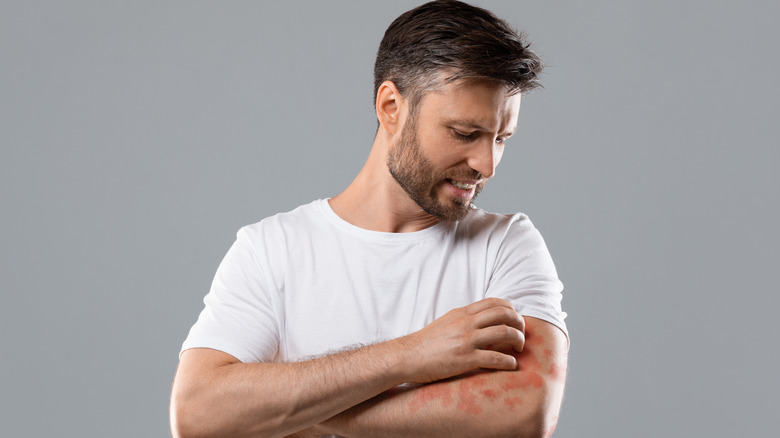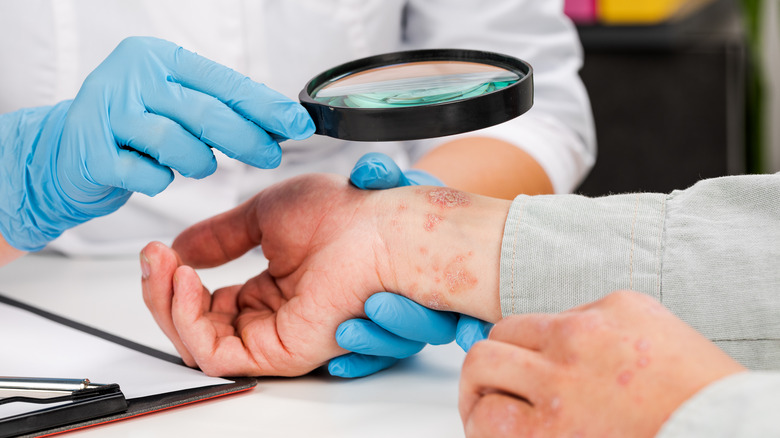The Real Difference Between Eczema And Psoriasis
It's important to love the skin you're in, but on the days when you're feeling your complexion is flecked with imperfections, you wish you could swipe on a real-life Instagram filter. Until that becomes a possibility, you're going to have to stick with the remedies that are available now.
If you notice parts of your skin are forming a rash and have become uncomfortably itchy, the first step to finding a remedy is to correctly diagnose the issue. Oftentimes, this can be difficult, as multiple symptoms overlap in different conditions. Take eczema and psoriasis, for example. The two may appear very similar, but there are ways to identify which one you have.
In addition to red scaly patches, the Mayo Clinic lists symptoms of psoriasis as dry and cracked skin, stiff joints, burning or itching skin, and changes in your nail beds. According to Byrdie, more than 8 million Americans have this condition. "Psoriasis is a chronic, immune-mediated disease that causes raised, red, scaly patches to appear on the skin," Dr. Robyn Gmyrek, a board-certified dermatologist, told Byrdie. "Normally, skin cells are replaced every 10 to 30 days. In patients with psoriasis, new cells grow every three to four days." This proliferation of cells causes a buildup of old cells, with new cells piling on top.
See your doctor for the most accurate diagnosis
Eczema also creates dry flaky red patches of skin that are visually similar to psoriasis. "Eczema describes a condition when the skin becomes red, itchy, dry and sometimes flaky, which can affect any part of the body," Dr. Marisa Garshick, a board-certified dermatologist, told Byrdie. "It is generally due to inflammation of the skin, but some triggers include dryness of the skin, stress, or if the skin comes into contact with something that can be irritating such as harsh soaps, detergents, chemicals, or clothing with a rough texture (such as wool clothing). For some people, intense heat and humidity can aggravate the skin as well."
Because of the nearly identical symptoms, the two skin conditions are often misidentified. However, there are some key differences distinguishing the two. WebMD says to take note of the timing. Psoriasis often appears in early adulthood, while eczema can flare up as early as one month after birth. The red scales and bumps of psoriasis also tend to be more raised off the skin than the red bumps of eczema. While both skin conditions can cause intense itching, psoriasis can also create a burning sensation.
For the most accurate diagnosis, consider making an appointment with your doctor or dermatologist. A proper diagnosis can lead to an effective treatment plan and faster healing. It will likely take longer than swiping on a filter, but at least you'll be on the right path to recovery.


